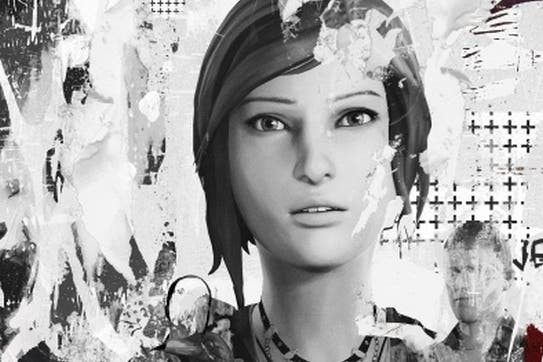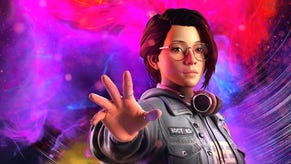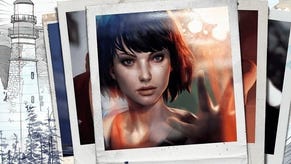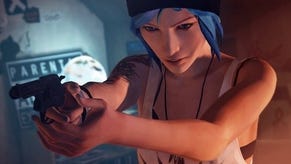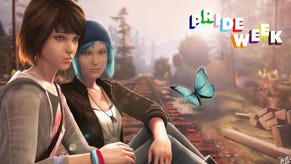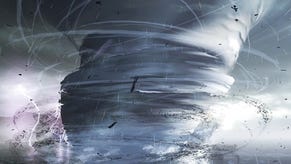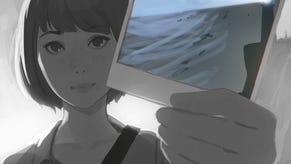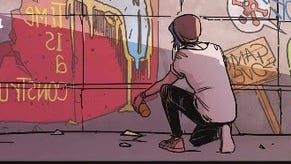Life is Strange: Before the Storm is brilliant and the new developer totally gets it
The Price is right.
I think Arcadia Bay is one of the very few fictional places that I've actually missed. I missed its gauzy, autumnal sunsets, the diner, the lighthouse, even the junkyard, and most of all, the particular nostalgia it all evokes for teenage bedrooms. Those strange, musky sanctums where every dirty dish, stained beer mat and smudged scribble is a badge of honour for a late night of tattered, misspent youth. Junk will never be so important to you again.
But as much as I missed those corners of Arcadia Bay, the time I had spent there had reached a natural, if tragic, conclusion. There was nothing more to be said, nothing more to be gained from poking around its halls. Everything had been neatly wrapped up, so what good could it do to overstay our welcome? I suspect that was a common reaction when a prequel was forecast, and that maelstrom only worsened when it was announced development had been handed over by publisher Square Enix from creators Dontnod to an entirely new team at Deck Nine.
In Life is Strange: Before The Storm, you play as former protagonist Max's divisive best friend Chloe Price, three years before the events of the first game. It's also just two years after the death of Chloe's father. Max has moved away to Seattle and stopped returning Chloe's calls, and Chloe's mother has started seeing someone new. Chloe attends Max's school, Blackwell, but her experiences there are markedly different from those of the quiet, studious, and comparatively popular Max. In fact, it's when Before the Storm's first episode, Awake, takes us to Blackwell that things really start getting interesting. Experiencing how this cliquey community treats grieving rebel Chloe, you begin to understand where her animosity for everything Blackwell comes from. This episode also shows us Max and Chloe's relationship from an entirely different perspective. I remember rolling my eyes when Chloe just couldn't seem to let go of the fact that Max had been made to move away in the first game. Here you see the casually cruel behaviour that accompanied that abandonment in a whole new light, and it makes Chloe's resulting bitterness feel entirely justified.
With Max gone so too is her power to rewind time, but in its place is a mechanic more suited to Chloe's talents. When a conversation doesn't seem to be going your way, you may have the opportunity to initiate Backtalk, a kind of verbal sparring where you must consider how best to turn an argument around on your aggressor and respond accordingly in a very short timeframe. Sometimes you'll have a number of chances to mess up, others you'll have to get every response right in order to come out on top, and without the ability to turn back the clock, every reaction counts. And just like thorough exploration could open up additional avenues of conversation with the help of Max's rewind feature, Chloe's backtalk mechanic encourages you to investigate every dialogue option and every point of interest in the hopes of unlocking more routes forward. Finding evidence as to his unemployment in the trash is an effective, if harsh, way of shutting David down when he insists you all have your own jobs to do around the Price household, for example. These back-and-forths are certainly satisfying to pull off, but it remains to be seen whether they have any actual impact on your story arc.
Given that reading verbal and non-verbal cues is so important, it's pleasing to see that Before the Storm improves both upon the lip-syncing and facial animation of the original game. It's confident enough to let those facial animations do the emotional heavy-lifting on more than one occasion, buoyed by a soundtrack that twinkles and rages in all the right moments. The dialogue can still clunk, but never in a way that will overly distract.
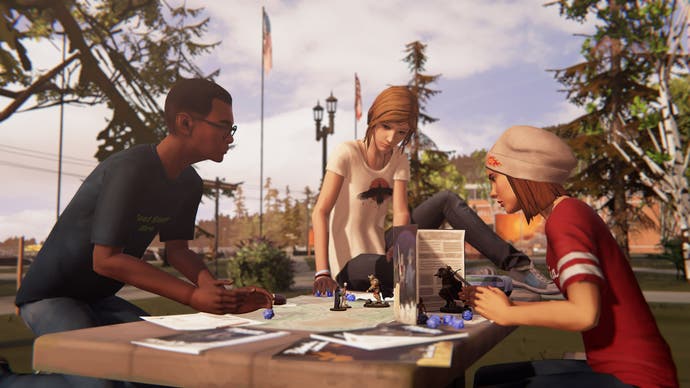
An entirely optional D&D campaign you can participate in before school is both inspired and very good fun, but it also serves to endear several new characters to you and allows you to safely explore how Chloe relates to and expresses herself to others. Is she courteous? Empathetic? Uncaring? Later, she plays another game with a character, and while it is ostensibly exposition and a way for the two to bond, the fact that you can choose to cheat or play the game like the character wants really draws you into - and makes you think about - Chloe's mindset and how she approaches situations that could potentially open her up to being emotionally vulnerable. There's also an emotionally charged sequence later on where gameplay and Chloe's mental state converge in a quietly clever way.
This is where the episode is at its best, not pitting you against any physical foe but against Chloe's own darkest impulses, those feelings of inadequacy that rise up and threaten to push people away just when they start to get close. Chloe's growing relationship with the perfect and popular Rachel Amber is something that I worried about experiencing first-hand. Rachel's sudden disappearance was the focus of the first game, but despite her absence hanging heavily over both Chloe and Max, and the fact that you heard so much about her second-hand, you never got to actually meet her. There was an air of mystery and intrigue about her that felt too good to ruin with reality. But actually, meeting the real thing, that mystery and intrigue is still very much intact, and from Chloe's perspective it's now very easy to understand how the entire student body - as well as some members of the faculty - were entranced. Chloe and Rachel have immediate and electrifying chemistry - the kind that only two headstrong teenagers can. Everything is messy and intense and hormonal, and you can see why Chloe, friendless smartass that she is, is completely in Rachel's thrall. She's excited by the girl, but also by the opportunity to give a middle finger to everyone confused by and jealous of their sudden relationship. The sad thing is that the same intoxicating and impulsive qualities that make Rachel irresistible also make her feel marked for tragedy, even if you didn't know this story could never have a happy ending. These violent delights have violent ends, but sometimes you just need to rage, and scream, and burn it all down before you can start again.
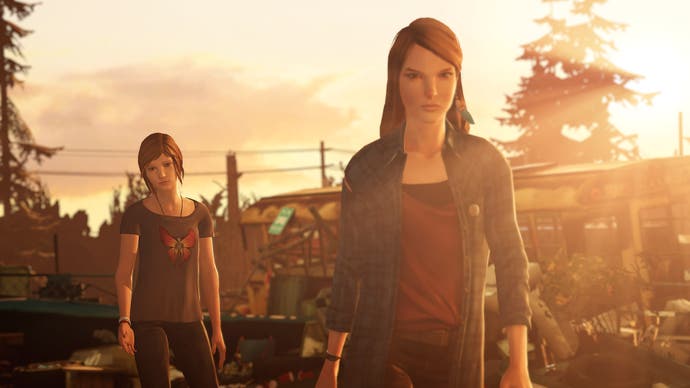
Given its cult status now, it's easy to forget how legitimate criticisms of the original Life is Strange gradually melted away in the face of its refreshing earnestness. The thing about Before the Storm is it's earnest too; it might be from a different developer to the original, but Deck Nine has done its homework on these characters and more - it has the confidence to make them and the story its own. It's very easy - right, even - to suspect a publisher-backed prequel will feel disingenuous, but there are times when it feels like the writing of Before the Storm builds upon and then surpasses the work of its predecessor. Playing the role of Chloe Price should feel raw and aggressive, but Before the Storm is also surprising in the ways it makes you care about her more. There's a gut-punch of a moment later in the episode that will stay with me for some time, and it's seldom the thought 'could be gayer' is quietly indulged by a video game without it ever making a big deal about it.
Against the odds, with a different team, different engine, different actors and different mechanics, Deck Nine has crafted an experience that feels authentic and heartfelt. Awake doesn't give us many clues as to where the story will go next episode and beyond, but it certainly ensures we're all aboard and along for the ride, wherever Chloe and Rachel take us next. Arcadia Bay, it feels hella good to be back.
